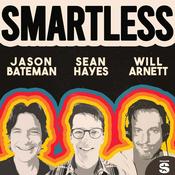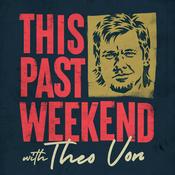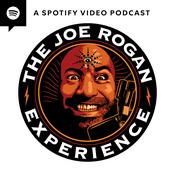636 episodes
- Abigail Thorn is an actor, writer, and the creator of the widely acclaimed YouTube channel Philosophy Tube, where she explores politics, culture, and philosophy through performance and storytelling. She is currently starring in BLINK, a London stage play about livestreaming, voyeurism, and parasocial intimacy written years before those concepts entered mainstream discourse.
🎭 Subscribe to Philosophy Tube: https://www.youtube.com/watch?v=wJ0HX-m_eSY
🎭 Get tickets to BLINK: https://kingsheadtheatre.com/whats-on/blink-df19
0:00-3:21 BLINK and Parasocial Intimacy
3:21-7:39 Parasocial Relationships and Boundaries
7:39-11:08 Building Philosophy Tube
11:08-13:51 Aesthetics, Performance, and Ideas
13:51-22:36 Theatre vs. YouTube as Mediums
22:36-30:01 Performance in Politics Without Sacrificing Substance
🦩SUBSCRIBE TO CURRENT AFFAIRS MAGAZINE: https://www.currentaffairs.org/membership
🦩 PATREON: https://www.patreon.com/c/CurrentAffairs
🦩THE MYTH OF AMERICAN IDEALISM: https://www.penguinrandomhouse.com/books/738224/the-myth-of-american-idealism-by-noam-chomsky-and-nathan-j-robinson/ - 🦩 Use the code "15OFF" for a discount on Current Affairs: https://www.currentaffairs.org/membership
The core right-wing principle is a belief in hierarchy, not the limitation of state power.
🐍 Read the article: https://www.currentaffairs.org/news/2022/07/why-conservatives-hate-the-government-but-love-the-cops
🦩SUBSCRIBE TO CURRENT AFFAIRS MAGAZINE: https://www.currentaffairs.org/membership
🦩 PATREON: https://www.patreon.com/c/CurrentAffairs
🦩THE MYTH OF AMERICAN IDEALISM: https://www.penguinrandomhouse.com/books/738224/the-myth-of-american-idealism-by-noam-chomsky-and-nathan-j-robinson/ - 🦩 Use the code "15OFF" for a discount on Current Affairs: https://www.currentaffairs.org/membership
For Peter Thiel, JD Vance, and other figures on today’s far right, the works of J.R.R. Tolkien have become a cultural touchstone. Pity they don’t understand the first thing about them.
🧙♂️ Read the article: https://www.currentaffairs.org/news/how-the-right-abuses-tolkien
🦩SUBSCRIBE TO CURRENT AFFAIRS MAGAZINE: https://www.currentaffairs.org/membership
🦩 PATREON: https://www.patreon.com/c/CurrentAffairs
🦩THE MYTH OF AMERICAN IDEALISM: https://www.penguinrandomhouse.com/books/738224/the-myth-of-american-idealism-by-noam-chomsky-and-nathan-j-robinson/ - EPA to stop animal testing, Palestinians go on general strike, Ye apologizes for his Nazism again, TikTok claims apparent censorship was caused by a power outage, and the government repeals workplace protections because they protect trans people.
📰 SUBSCRIBE TO THE BRIEFING: https://www.currentaffairs.org/membership
🦩 SUBSCRIBE TO CURRENT AFFAIRS MAGAZINE: https://www.currentaffairs.org/membership
🦩 PATREON: https://www.patreon.com/c/CurrentAffairs
🦩THE MYTH OF AMERICAN IDEALISM: https://www.penguinrandomhouse.com/books/738224/the-myth-of-american-idealism-by-noam-chomsky-and-nathan-j-robinson/ - Ro Khanna is the U.S. representative for California’s 17th Congressional district, more commonly known as “Silicon Valley.” He was a co-chair of Bernie Sanders’ presidential campaign in 2020, and there’s been speculation he may run for president himself in 2028. He joined Current Affairs associate editor Alex Skopic to discuss his bipartisan efforts to release the Epstein files, a “new FDR moment” for the Democratic Party, and the dangerous state of U.S. foreign policy under Donald Trump.
🦩 Read Alex Skopic's Article on Ro Khanna: https://www.currentaffairs.org/news/every-argument-against-the-california-billionaire-tax-is-wrong
🦩 Interview Transcript: https://www.currentaffairs.org/news/ro-khanna
0:00–4:22 Why the Epstein Files Still Aren’t Public
4:22–5:18 Impeaching Attorney General Pam Bondi
5:18–7:05 What’s Inside the Epstein Files
7:05–8:38 Will the Epstein Files Ever Be Fully Released?
8:38–15:39 The Billionaire Tax & an FDR-Style Economic Vision
15:39–21:20 Should Billionaires Exist at All?
21:20–24:25 Gavin Newsom, Ben Shapiro, and Gaza
24:25–29:36 Ro Khanna Explains His Israel Aid Vote
29:36–31:58 Offensive vs. Defensive Weapons to Israel
31:58–35:36 China, Competition, and Rejecting a New Cold War
35:36–37:38 Can Congress Stop Trump’s Wars?
37:38–40:42 Should Trump Face War Crimes Charges?
🦩SUBSCRIBE TO CURRENT AFFAIRS MAGAZINE: https://www.currentaffairs.org/membership
🦩 PATREON: https://www.patreon.com/c/CurrentAffairs
🦩THE MYTH OF AMERICAN IDEALISM: https://www.penguinrandomhouse.com/books/738224/the-myth-of-american-idealism-by-noam-chomsky-and-nathan-j-robinson/
More Comedy podcasts
Trending Comedy podcasts
About Current Affairs
A podcast of politics and culture, from the editors of Current Affairs magazine.
Podcast websiteListen to Current Affairs, No Such Thing As A Fish and many other podcasts from around the world with the radio.net app

Get the free radio.net app
- Stations and podcasts to bookmark
- Stream via Wi-Fi or Bluetooth
- Supports Carplay & Android Auto
- Many other app features
Get the free radio.net app
- Stations and podcasts to bookmark
- Stream via Wi-Fi or Bluetooth
- Supports Carplay & Android Auto
- Many other app features


Current Affairs
Scan code,
download the app,
start listening.
download the app,
start listening.





































